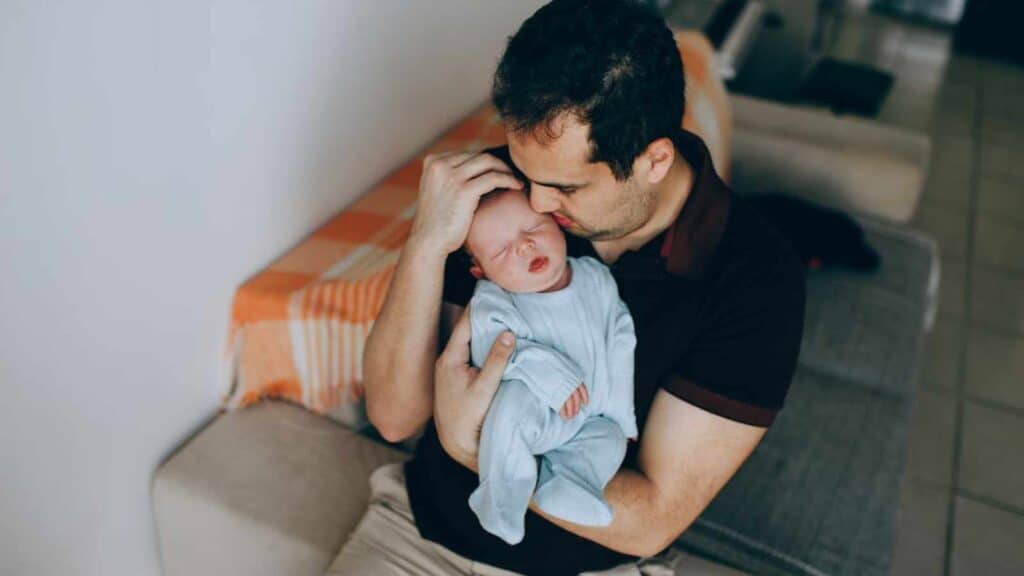Why Millennials Today Often Stop at Having Just One Child
We are a generation so spoilt for options that no one will believe your second, third, or fourth child was a mistake; we simply call it “unplanned.” And when it happens, the first response is to go back to the drawing board: “Which family planning are you on?” Believe me, the answer “none” could even cost you friendships—because in today’s culture, that’s read as careless and arrogant.
No one wants to shoulder someone else’s baggage when it’s seen as self-inflicted. And if the father of your child shows no intent of making you a wife, why press on to baby number two? It has become increasingly common for men to avoid accountability, and relationships are rarely legitimized through genuine commitment.
Self-love, at times, has blurred into selfishness. Yet even with these shifts, many argue the good outweighs the bad—because the power of choice is finally in individual hands. That’s how the phrase “one and done” gained traction, a shorthand for families who decide that a single child is enough, thanks to family planning.
Limited Bandwidth

One study, “Who Benefits From Being an Only Child?“, found that only children fared significantly better in family relationships compared not only to multi-child families, but also to firstborns in families with multiple children. The study’s authors also note distinct gender dynamics at play, where “daughters benefit from being only children, while girls in multi-child families are disadvantaged by younger brothers.” These data point to family size limitation as a method to strengthen emotional ties and invest in children in a more intentional manner.
A scoping review of studies on advanced maternal age, published in Behavioral Sciences, found a positive relationship between age and parental resource allocation, where advanced maternal age is associated with more supportive parenting. Children of older mothers were also observed to have better outcomes in emotional and social development, exhibiting fewer behavioral and emotional difficulties as well as stronger language skills than their peers.
Egalitarian Attitudes Towards Gender Roles Essay
The pre-existing inequalities in the division of paid work and domestic tasks are exacerbated when couples become parents, and that gap matters a lot in Millennials’ fertility choices. A British longitudinal study by Pia Schober found that women increase their housework time by approximately 4.5 hours per week and reduce their paid work by close to 14 hours on average after the birth of their first child, whereas the time men spend on housework and paid work remains largely unaffected.
The extent of the total change in time allocation becomes less if women have higher absolute earnings and more egalitarian attitudes toward gender roles before having a child. Therefore, for Millennials who value equality and want to maintain a career or avoid feeling overwhelmed, the expectation that one parent (generally, the mother) should shoulder the bulk of the unpaid family life burden makes having only one child a more realistic and attractive choice.
A Legacy of Self
They read about Vanderbilt’s history, and they heard you. The vast fortune amassed by hard work and sacrifice was mostly gone within two or three generations, consumed by an aristocracy of idlers who spent more than they produced. Millennials understand this history, but they don’t see it as an exception.
Legacy and wealth built on bloodlines alone are inherently unsustainable, so they’re redefining it in personal terms: legacy is about self-actualization, happiness, and being true to oneself. Waking up every day and doing the things that matter to them is more meaningful than bequeathing wealth that will dissipate in the next generation or two. To them, the richest inheritance is the one they have now: the life they lead.
Detached Fatherhood

Absent fathers aren’t a new occurrence, but Millennials are far less sentimental about their approach. “By 1990, 64 percent of Black infants and 18 percent of White infants in the U.S. were born to single mothers, up dramatically from 1965,” says a Brookings policy brief.
An estimated one million children are born each year to fatherless homes, and the statistics are grim: children of single parents face far greater odds of being raised in poverty.
The Opportunity Cost Dilemma Essay
Most one-and-done scenarios as a mom happen when you first opt to be childfree, then face the dilemma and peer pressure. Later, you discover motherhood costs you time and money. In the Choosing to Be Childfree study, Blackstone & Stewart (2012) found that most individuals who voluntarily opt to be childfree cite a career, education, or even the simple pursuit of other life goals as their primary motivations.
When every hour not working or caring for another person counts—whether it is for professional advancement, hobbies, friendships, or social capital—the opportunity costs add up fast.
When Postpartum Depression Rewrites Plans for More Children
Between 1 in 7 and 1 in 5 new mothers experience PPD, with symptoms ranging from persistent sadness and anxiety to feelings of being overwhelmed or detached. With 50% of the cases remaining undiagnosed, which is linked to stigma around PPD, women who have struggled with PPD are significantly less likely to plan for another pregnancy, citing fears of relapse and an inability to manage added stress.
Early Retirement Dreams
Even though impossible for many due to the underperforming job market, it’s every Millennial’s dream to retire early—or at least secure financial independence long before their parents did. The appeal of the FIRE (Financial Independence, Retire Early) movement has only magnified this desire, but the path is steep when weighed against the rising costs of housing, childcare, and education. Each additional child pushes retirement further away, diverting funds from savings and investments into day-to-day family expenses.
Child Mortality & Life Expectancy

A reserach on PubMed Central shows that increased numbers of children are associated with all-cause mortality for parents. This means that child mortality and life expectancy are completely linked to family size. As a result, parents with more children may experience their own health risks more frequently, due to increased strain from having more children over time.
This may affect the Millennial decision as well: when survival and health outcomes are at risk, the possibility of child loss or personal health decline after may encourage parents to have only one child.
Delayed Parenthood
It might be by choice or circumstantial, but Millennials are entering parenthood later than any generation before them.
- By Choice: Many delay having children to pursue higher education, establish careers, travel, or achieve financial stability first. This intentional waiting is often seen as an investment in being better prepared to parent, but it inevitably reduces the years available for safely expanding a family.
- By Circumstance: Others postpone due to factors outside their control such as rising housing costs, student debt, job insecurity, or the challenge of finding a committed partner. In these cases, waiting isn’t strategic, but the outcome is the same: a smaller window of fertility and higher risks during pregnancy.
Thanks to Family Planning
From daily pills and monthly shots to long-acting IUDs and implants, reproductive health choices are more accessible and diverse than ever. Some couples choose reversible methods to keep doors open, while others go straight for permanent decisions like tubal ligation or vasectomy after their first child, deciding early that one is enough.
With this control, the likelihood of unplanned pregnancies drops sharply, allowing Millennials to align family size with their financial, career, and lifestyle goals.
Why investing for retirement is so important for women (and how to do it)

Why investing for retirement is so important for women (and how to do it)
Retirement planning can be challenging, especially for women who face unique obstacles such as the wage gap, caregiving responsibilities, and a longer life expectancy. It’s essential for women to educate themselves on financial literacy and overcome the investing gap to achieve a comfortable and secure retirement. So, let’s talk about why investing for retirement is important for women and how to start on this journey towards financial freedom.







